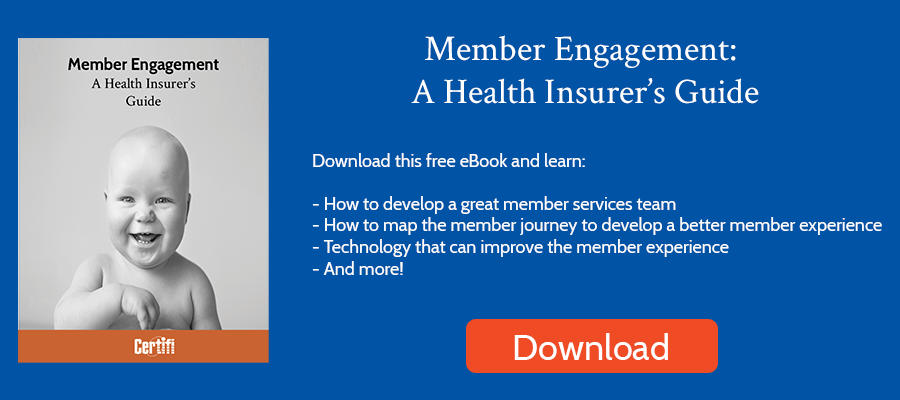The Centers for Medicare and Medicaid Services (CMS) last month released Medicaid access proposed rules (CMS 2442-P and CMS-2439-P) designed to improve access to care, financial integrity, and quality in Medicaid and the Children’s Health Insurance Program (CHIP). Though the rules cover a lot of ground, let’s examine how these Medicaid access proposed rules may impact managed care organizations.
Medicaid Advisory Committee (MAC) and Beneficiary Advisory Group (BAG)
CMS is proposing changes to the regulations governing Medicaid’s Medical Care Advisory Committee (MCAC), which CMS will rename the Medicaid Advisory Committee. It would also introduce a Medicaid Beneficiary Advisory Group (BAG) composed of Medicaid beneficiaries, their families, and their caregivers. BAG members would comprise at least 25% of MAC membership. The proposed changes aim to improve how these committees function while ensuring greater beneficiary involvement.
The proposed changes include adding requirements for recruitment, meeting scheduling, recordkeeping, and support for beneficiary members.
It would also create stakeholder representation on the MAC. The committee includes BAG members, consumer advocacy groups, clinical providers, managed care plans, and other state agencies serving beneficiaries.
In the spirit of transparency, the proposed regulations would require that the MAC, with support from the State, submit an annual report to the State that includes feedback and perspectives from the BAG. States would be required to respond to recommendations in the report.
Impact
The proposed rule primarily focuses on encouraging the voice of enrollees but also invites other stakeholders, like managed care organizations, to participate in the Medicaid Advisory Committee.
Minimum Wait Times
CMS proposes appointment wait time standards to ensure timely access to primary and preventive care services for Medicaid enrollees. It also proposes a means of assessing and enforcing compliance with these standards. The proposed standards intend to help managed care plans assess their networks, aid States in ensuring appropriate access to care, and help ensure that managed care plans have the capacity to serve the expected enrollment in their service area.
The proposed appointment wait time standards ensure that Medicaid enrollees have timely access to primary and preventive care services. CMS proposed wait time standards for four areas of routine care:
- Outpatient mental health: Appointment wait times must be no longer than ten business days
- Primary care: Appointment wait times must be no longer than 15 business days
- OB/GYN care: Appointment wait times must be no longer than 15 business days
The proposed wait times mirror those set by CMS in the Affordable Care Act (ACA) marketplace. Ultimately, states can determine their desired maximum wait times but cannot exceed those outlined above.
CMS also proposed secret shopper surveys to assess compliance with appointment wait time standards. CMS believes that these surveys could provide unbiased, credible, and representative data on how often network providers offer routine appointments within the State’s wait time standards. They’d also like to ensure the accuracy of electronic provider directories.
The proposed rule requires states to use independent entities to perform annual surveys of managed care plan compliance with appointment wait time standards and electronic directories. Among the items shoppers will verify in electronic directories are:
- Provider identity
- Locations
- Qualifications
- Availability
Impact
Appointment wait times will face more scrutiny, in the form of secret shopping, to ensure they are below the prescribed maximum wait times. Also, shoppers will scrutinize electronic provider directories to ensure they include accurate information. As a result, managed care plans must ensure the accuracy of their provider data and develop adequate provider networks to minimize wait times.
Enrollee Experience Surveys
CMS also proposed that States conduct an annual enrollee experience survey and report the results as part of their managed care program monitoring. The agency believes surveying enrollees on their actual and perceived access to services can provide valuable information to improve managed care programs.
CMS envisions enrollee experience surveys similar to the Consumer Assessment of Healthcare Providers and Systems (CAHPS) survey. States can use survey results to improve managed care program performance. The proposed rule also includes revisions to the Managed Care Program Annual Report and proposes that States post the report on their website within 30 calendar days of submitting it to CMS.
Impact
CMS envisions leveraging data – like secret shopper reports and enrollee experience surveys – to help determine the quality of managed care plans. Managed care organizations should review their practices to ensure an engaging beneficiary experience.
Quality Rating System
CMS has proposed new standards for quality measures in Medicaid managed care programs. The quality measures would include mandatory measures – like the percentage of women who had a breast cancer screening or the percentage of members who were diagnosed with hypertension and adequately controlled their blood pressure.
CMS would also like states to create a website so enrollees could find and compare plans.
Impact
CMS will continue to make plan performance measures available to beneficiaries. Managed care organizations need to focus on understanding and improving those measures.
Certifi’s William™ platform helps Medicaid managed care plans reconcile capitated payments, recapturing lost revenue and ensuring accurate payments.



